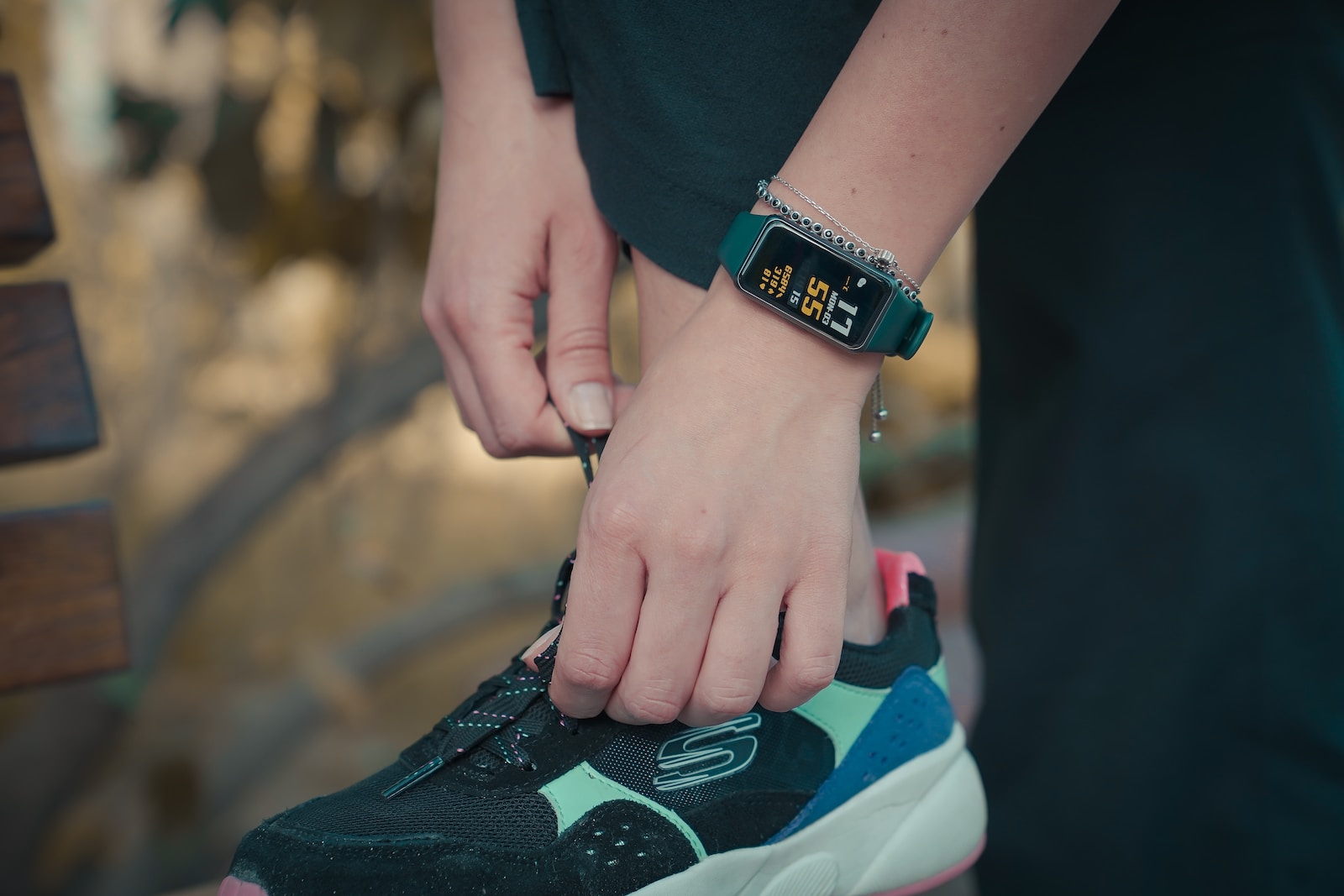Fitness Trackers and Apps: Using Technology to Enhance Your Workouts
Fitness Trackers and Apps In today’s fast-paced world, where technology permeates almost every aspect of our lives, fitness enthusiasts are turning to modern tools to optimize their workouts. Fitness trackers and apps have revolutionized the way people approach their fitness journeys, offering a wealth of information and personalized insights to enhance their exercise routines. This article delves into the significance of fitness trackers and apps, their benefits, and how they can elevate your workout experiences.
The Rise of Fitness Trackers and Apps
Over the past decade, fitness trackers and apps have witnessed a meteoric rise in popularity. These innovative devices and applications have become integral companions for fitness enthusiasts of all levels, helping them stay motivated and informed about their progress.
Benefits of Using Fitness Trackers and Apps
- Tracking Physical Activity
Fitness trackers and apps excel in monitoring various physical activities, such as steps taken, distance covered, and calories burned. By keeping a close eye on these metrics, individuals can gain a better understanding of their daily activity levels and make informed decisions about their fitness goals.
- Setting Goals and Tracking Progress
One of the most significant advantages of using fitness trackers and apps is the ability to set personalized goals and track progress over time. Whether it’s achieving a specific number of steps per day or running a certain distance, these devices offer tangible targets to work towards.
- Monitoring Heart Rate and Sleep Patterns
Many fitness trackers come equipped with heart rate monitors, which offer valuable insights into cardiovascular health during workouts and rest. Additionally, they can analyze sleep patterns, helping users optimize their sleep quality for better overall performance.
- Personalized Workouts and Training Plans
Several fitness apps provide personalized workout routines and training plans tailored to individual needs and goals. These customized workouts ensure that users engage in exercises that are most effective for them, leading to better results.
Popular Fitness Trackers and Apps in the Market
Several brands have made a mark in the fitness technology market, offering a wide range of fitness trackers and apps to suit various preferences and requirements. Some of the most popular options include:
- Fitbit
Fitbit is synonymous with fitness tracking, offering an array of wearable devices that track physical activity, heart rate, and sleep patterns. The Fitbit app provides users with detailed data analysis and encourages friendly competition among friends.
- Apple Watch
The Apple Watch has become a staple for fitness enthusiasts, combining fitness tracking with smartwatch features. With a host of health and fitness apps available on the App Store, users can customize their workouts and track progress seamlessly.
- Garmin
Garmin offers an impressive lineup of fitness-focused smartwatches that cater to athletes and outdoor adventurers. These watches come with GPS capabilities, advanced performance metrics, and specialized sport profiles.
- MyFitnessPal
MyFitnessPal is a popular app that focuses on nutrition and diet tracking, making it an excellent complement to fitness trackers. Users can log their meals, monitor calorie intake, and set personalized nutrition goals.
- Nike Training Club
The Nike Training Club app offers a diverse range of guided workout sessions led by world-class trainers. It caters to different fitness levels and workout preferences, making it an ideal choice for those seeking variety.
How Fitness Trackers and Apps Enhance Workouts
- Real-Time Data and Feedback
Fitness trackers and apps provide real-time data and feedback during workouts, enabling users to adjust their intensity and pace as needed. This instant feedback fosters a deeper connection between individuals and their workouts.
- Motivation and Accountability
With fitness trackers and apps, users can set reminders, create challenges, and receive motivational messages. These features cultivate a sense of accountability, encouraging individuals to stay consistent with their exercise routines.
- Diverse Workout Options
Fitness apps offer a diverse array of workout options, ranging from traditional exercises to trending fitness routines. This diversity ensures that users can explore and experiment with various workouts, keeping their fitness journey engaging and enjoyable.
Challenges and Limitations
While fitness trackers and apps have proven to be valuable tools, they are not without challenges and limitations that users should be aware of.
- Accuracy Concerns
Some users may question the accuracy of certain metrics, such as calorie burn estimates and heart rate readings. While technology has come a long way, there is still room for improvement in ensuring precise measurements.
- Battery Life and Charging
Depending on the device, fitness trackers may require frequent charging, which could be inconvenient for users who prefer continuous wear.
- Dependency on Technology
Relying solely on technology for fitness tracking can potentially disconnect users from their bodies and intuitive exercise patterns.
Tips for Maximizing the Use of Fitness Trackers and Apps
To ensure optimal results and a seamless fitness journey, consider the following tips:
- Set Realistic Goals
Set achievable fitness goals that align with your current fitness level and lifestyle.
- Listen to Your Body
Pay attention to your body’s signals and avoid pushing yourself too hard, as rest and recovery are equally important.
- Balance Technology with Human Expertise
While fitness trackers and apps provide valuable insights, consulting with fitness experts can offer personalized guidance and support.
Incorporating Technology into Different Workout Routines
Here are some ways to incorporate fitness trackers and apps into different workout routines:
- Running and Jogging
Use GPS-enabled trackers to map your running routes and monitor your pace and progress.
- Strength Training
Track your reps, sets, and rest periods to optimize your strength training sessions.
- Yoga and Meditation
Explore meditation and mindfulness apps to complement your yoga practice and promote mental well-being.
- The Future of Fitness Trackers and Apps
With advancements in technology, the future of fitness trackers and apps looks promising.
- Advancements in Health Monitoring
Expect improved accuracy and additional health monitoring features to become commonplace.
- Integration with Virtual Reality and Augmented Reality
Fitness apps may integrate virtual reality and augmented reality to create immersive and interactive workout experiences.
Conclusion
Fitness trackers and apps have transformed the way we approach fitness, empowering individuals to take charge of their health and well-being. By providing real-time data, personalized insights, and motivation, these technological companions have proven to be invaluable assets in the pursuit of a healthier lifestyle
FAQs
- Are fitness trackers accurate in measuring calories burned? While fitness trackers offer estimates, their accuracy may vary based on factors like body composition and exercise intensity.
- Can fitness apps replace personal trainers? Fitness apps can be beneficial, but personal trainers offer tailored expertise and individualized support.
- Do all fitness trackers require a smartphone connection? Many fitness trackers can function independently, but some features may require a smartphone connection.
- Can fitness apps track nutrition and diet habits? Yes, several fitness apps can track nutrition and offer insights into dietary habits.
- Are there fitness trackers designed for specific sports? Yes, some fitness trackers cater to specific sports, providing sport-specific metrics and data analysis.


